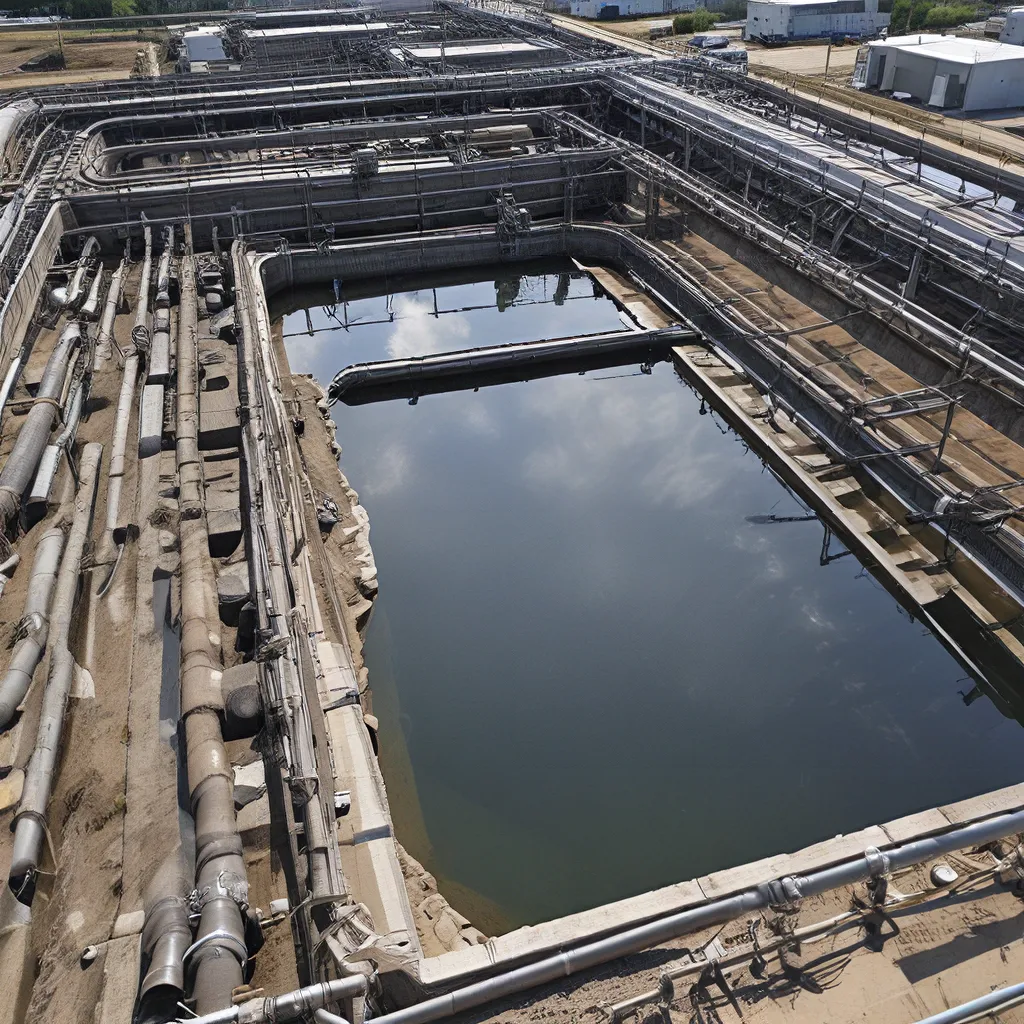
As I dive into the world of wastewater treatment, I can’t help but feel a sense of excitement about the digital transformation that’s reshaping this industry. It’s like watching a phoenix rise from the ashes – an ancient practice being reborn with the power of modern technology.
Gone are the days when wastewater treatment was a purely manual, labor-intensive endeavor. Today, we’re witnessing the convergence of water, wastewater, and digital technologies, creating a new frontier of possibilities. And I, for one, can’t wait to explore it.
The Rise of Industry 4.0 in Wastewater Treatment
If you had told me a decade ago that wastewater treatment would be at the forefront of the Fourth Industrial Revolution, I probably would have raised an eyebrow. After all, this industry has long been seen as the underdog, overshadowed by its more glamorous siblings in the manufacturing and energy sectors.
But times have changed, my friends. The digital transformation has reached the depths of our sewers, and it’s bringing with it a slew of Industry 4.0 technologies that are revolutionizing the way we manage our wastewater.
Recent research has highlighted the key role that technologies like the Internet of Things (IoT), artificial intelligence (AI), and big data analytics are playing in optimizing wastewater treatment processes. It’s like we’ve suddenly unlocked a hidden superpower that allows us to see and control every nook and cranny of our wastewater infrastructure.
Imagine a world where sensors constantly monitor the flow, pH, and other critical parameters of your wastewater, sending real-time data to a central command center. AI algorithms then analyze this data, detect anomalies, and optimize the treatment processes to ensure maximum efficiency. It’s a far cry from the days when operators had to rely on manual checks and gut instincts.
Embracing the Digital Transformation in Wastewater Treatment
But the digital transformation in wastewater treatment isn’t just about automation and optimization. It’s also about improving sustainability, reducing costs, and enhancing the overall user experience.
Take the case of Alpha Wastewater, a company that’s at the forefront of this digital revolution. They’ve integrated cutting-edge technologies like predictive maintenance and remote monitoring into their wastewater treatment services, allowing them to anticipate and address issues before they become major problems.
By leveraging real-time data and advanced analytics, Alpha Wastewater is able to optimize energy consumption, chemical usage, and sludge management, ultimately reducing their carbon footprint and operational costs. And the best part? Their clients get to enjoy a seamless, hassle-free experience, with 24/7 access to critical information and the peace of mind that their wastewater is in good hands.
Overcoming Challenges and Driving Innovation
Of course, the road to a fully digitized wastewater treatment industry isn’t without its challenges. Cybersecurity, data privacy, and workforce upskilling are just a few of the hurdles that industry players must navigate.
Sustainability researchers have highlighted the importance of robust data governance frameworks and comprehensive training programs to ensure that the digital transformation in wastewater treatment is secure, sustainable, and inclusive.
But I believe that these challenges are surmountable, and that the potential rewards of embracing Industry 4.0 technologies far outweigh the risks. After all, the future of our water resources is at stake, and we can’t afford to let outdated practices hold us back.
A Vision for the Future of Wastewater Treatment
As I look ahead, I can’t help but feel a sense of awe and anticipation about the future of wastewater treatment. Imagine a world where every drop of water is reclaimed, recycled, and reused, thanks to the power of smart sensors, AI-driven optimization, and remote monitoring.
Industry experts suggest that we’re on the cusp of a new era, where wastewater treatment plants become hubs of energy production, resource recovery, and environmental protection. No longer just a necessary evil, but a vital component of our sustainable, circular economy.
Of course, we still have a long way to go, and there’s plenty of room for innovation and collaboration across the industry. But I, for one, am excited to be a part of this transformation, to witness the convergence of water, wastewater, and digital technologies, and to see how it will shape the future of our planet.
So, let’s dive in, shall we? The digital revolution in wastewater treatment is here, and it’s time to embrace it with open arms.